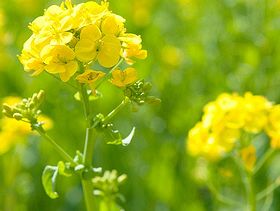 It comes following a revision of official Government figures on the greenhouse gas (GHG) emission levels of oilseed rape, originally submitted in the Department for Transport’s (DfT) NUTS2 report.
It comes following a revision of official Government figures on the greenhouse gas (GHG) emission levels of oilseed rape, originally submitted in the Department for Transport’s (DfT) NUTS2 report.The previous report had not fully accounted for to improving agricultural practices and yield improvements, which would have prevented some regions of the UK selling oilseed rape for biodiesel production without a financial penalty and onerous paperwork.
The NFU worked closely with project leaders HGCA and the DfT, to improve and update regional GHG emissions data, ensuring UK farmers continue to have access to the full range of oilseed and cereal markets, including bioenergy.
NFU biofuels spokesman Brett Askew said: “We are delighted with the work the DfT and HGCA have put into reviewing this data. This process has been an excellent example of the Government working with industry and using clear, scientific evidence, on which to base decisions; something I hope will be translated across all Government thinking on bioenergy production.
“For now we are pleased with another successful outcome following the approval of the Red Tractor in August 2012 as a Recognised Voluntary Scheme, allowing feedstocks from Red Tractor assured farmers to count towards mandatory national renewable energy targets.”





